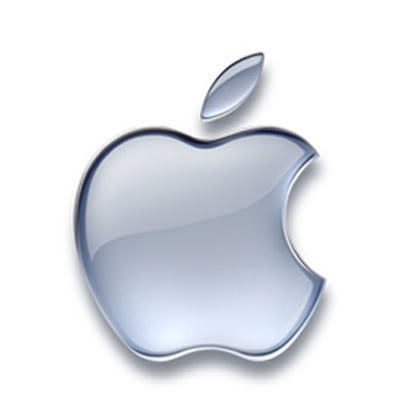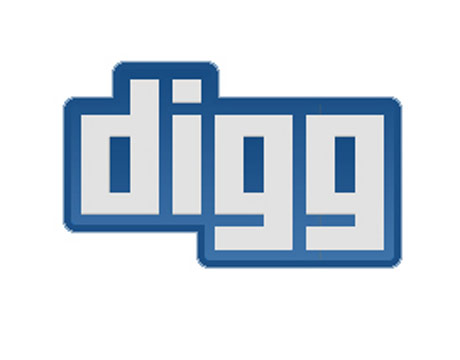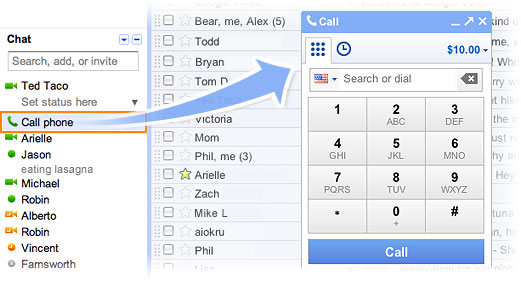
Google introduces two-step authentication for Apps product
Google on Monday announced that it would offer a two-step security option to certain customers of its Google Apps product, aiming to offer its customers a low cost option for higher security. The new authentication system would combine the traditional password with a verification code sent to the user's mobile phone.
Initially the offering would be available to English users of its Premier, Education and Government editions, with Standard edition customers getting the feature in the coming months. Google wants to ensure they can scale the feature reliability before expanding it to the "hundreds of millions" using the free version.

Twitter gets a new user interface
At a press conference in San Francisco Tuesday, popular microblogging site Twitter co-founders Biz Stone and Evan Williams announced the site will be rolling out a new user interface similar to the one used by the critically acclaimed Twitter iPad app.
Like the iPad app, the new Twitter interface is broken into two columns, the left will be the usual view of your feed, and the right hand side will contain detail overlays. For example, when users include links to photos, video or music, the linked content is embedded in Twitter.com, shown in the right hand column. According to the site's founders, one quarter of the 90 million tweets that are sent every day contain links, that's 22.5 million daily reasons for users to navigate away from Twitter. This move will keep users of the Web interface more stuck to the site.
YouTube takes its first run at live broadcasting today
On Monday and Tuesday, YouTube will begin the trial of its live streaming TV platform, which uses the live Web-broadcasting technology that YouTube has already used for events such as the presidential inauguration and E3. The unique addition to this test will be the "Live Comment" feature, which lets users directly communicate with the broadcasters during their show.
YouTube partners Howcast, Next New Networks, Rocketboom and Young Hollywood will be the broadcasters participating in this two-day trial, and the first show begins at 8am PST/11am EST. Long-running video podcast Rocketboom will be the first show to take the plunge today, and instead of the usual three-minute episodic blast, Rocketboom is expected to do an hour-long episode in the fashion of a live TV variety show.

Google Instant provides search results as you type
Google Wednesday launched a new search feature called Google Instant, which offers search results as you are typing your query terms.
Around this time two years ago, Google unveiled Suggest, a feature which predicted what searchers were looking for as it was being typed in the Google search field. Instant takes this a step further and provides the actual results so the user doesn't have to even click "search" or hit enter.

Ping off to a rocky start as spam, issues plague service
Apple's foray into social music is not going well as its Ping service is experiencing a multitude of problems, including comment spam, a lack of promised functionality, and generally inconsistent user experience.
Security researcher Chet Wisniewski at Sophos said Apple is not employing any type of spam or URL filtering, as comments such as those advertising "free iPhones" were already appearing some 24 hours after the site's launch. He also said that Apple has made it easy for those to abuse the service.

Google introduces Gmail Priority Inbox beta for intelligent message filtering
Google continued its reinvention of the Gmail inbox Tuesday with the introduction of Priority Inbox Beta, a new mail filtering system that prioritizes emails based upon the user's viewing and responding habits.
The feature will be rolled out incrementally to Gmail users over the next week, and will break up inboxes into three categories: Important and Unread emails, Starred conversations, and "everything else." Incoming messages will automatically be routed into one of these three categories, which Gmail determines by user trends. For example, if a particular contact is someone frequently exchanging emails with the user, their incoming messages will be ranked as more important than someone else's. Similarly, messages that users actually opened instead of skipped, deleted or "marked as read" from certain senders will be considered higher priority.

Introducing a new, more social Digg
Popular social link-sharing and bookmarking site Digg on Wednesday made its new, redesigned site available to all users after testing in an invitation-only mode for roughly four months.
"This redesign is a major revision of our platform -- front end to back end -- this is just phase one of what will be an on-going, iterative process, involving lots of input from all of you. We'll be pushing out features on a regular basis and tweaking often, "Digg founder and CEO Kevin Rose said on Wednesday. "Our goal has always been for Digg to be a place where people can discover and share content and conversations from anywhere on the web. With Digg v4, we are introducing a few things that will make discovering and discussing news a lot better."

Google unveils voice calling through Gmail
Wednesday, Google officially announced that North American Gmail users can place voice calls to any phone number directly from their Gmail interface. The feature will roll out to all users in the next few days.
Users will be able to place totally free calls within the U.S. and Canada for "at least the rest of this year," and international calls for comparatively low rates. All outgoing calls originate from the user's Google Voice number, and calls can even be received within the Gmail interface.

Adobe updates Web-based Photoshop, no longer demands membership
Now approaching its third year online, Adobe's Web-based photo editing suite Photoshop Express underwent a significant redesign which launched Wednesday. Adobe Photoshop Express Editor, Organizer, and Uploader are included in the refresh.
Firstly, a Photoshop.com account is no longer needed to use Photoshop Express Editor. Users can simply navigate to the Web app, upload photos directly from their local drive, edit and change the photos, and then save them back on their local storage. Previously, an account was necessary, and photos were uploaded to online storage first before they were edited. This is still an option, as Photoshop.com members can still store and share photos online as well as create albums, but it's no longer the only way to use the Editor.

Scitable pulls scientific research out from behind the paywall
I experienced quite a personal shock when I aged out of having access to my university's research portal. The vast catalog of peer-reviewed journals, empirical studies, and thorough analytical research I had at my disposal as a student was boarded up behind a distinct paywall not long after I finished school.
The fast-moving news, blogs, forums, and free tools I had been taught to eschew were suddenly all I had. My principal option (besides re-enrolling in school) was to become a member of a research service like LexisNexis or NewsLibrary; but those portals cost several hundred dollars a year each.
I suddenly recognized that the best information on the Web is not free.

Facebook adds check-in feature with "Places," teams up with likely competitors
Leading social network Facebook Wednesday announced Facebook Places, a service which adds location awareness to the service's mobile experience.
The service launches tonight in the United States as a part of the Facebook application for iPhone, and on the HTML5 touch.facebook.com, and users will have the ability to "check in" to their locations similar to the way users on Foursquare, Gowalla, and Brightkite can, and likewise they can find out who and what is available around them.

Yahoo begins transition to Bing search, kills SearchMonkey
Yahoo said Tuesday that it would begin to switch over its search backend to the Microsoft platform in the US and Canada, the cornerstone of an agreement reached between the two companies last July. A "Powered by Bing" graphic would appear at the bottom of its search pages after the transition, the company said.
It would still be some time yet before other markets worldwide transition to Bing, for which Yahoo gave no timeline, although it's expected the full transition wouldn't be complete until 2012. Of course, one notable example would be Japan: that division is switching to a Google backend pending regulatory approval and any legal challenges.

CBS Interactive launches the Foursquare of TV viewing, TV.com Relay
Thursday, CBS interactive launched a mobile Web app called TV.com Relay, which lets users "check in" to the TV shows they happen to be watching and earn badges for their activities just like popular location-based games Foursquare and Gowalla.
Unlike those location based services, though, you don't actually have to go anywhere to use Relay.

'Virtual cable TV' service GenosTV seeks beta testers worldwide
GenosTV, a company billing itself as the first "virtual cable TV provider" is looking for beta testers for its IPTV platform. The service will differentiate itself in three ways: by not requiring a dedicated set-top box, by offering complete à la carte pricing, and by not being an on-demand service like Hulu and its competitors.
The service aims to be a platform agnostic linear streaming service, so any connected TV, media player, or set top box will be able to access the GenosTV service.

Google confirms acquisition of 'Superpoke' maker Slide
Google on Friday officially announced it has acquired Slide Inc., confirming rumors circulating earlier in the week. Slide creates entertainment products that tie in with social networks and online communities such as SuperPoke! and its family of related games, Top Fish, and FunSpace.
"For Google, the Web is about people, and we're working to develop open, transparent and interesting (and fun!) ways to allow our users to take full advantage of how technology can bring them closer to friends and family and provide useful information just for them," David Glazer, Engineering Director at Google said Friday.
